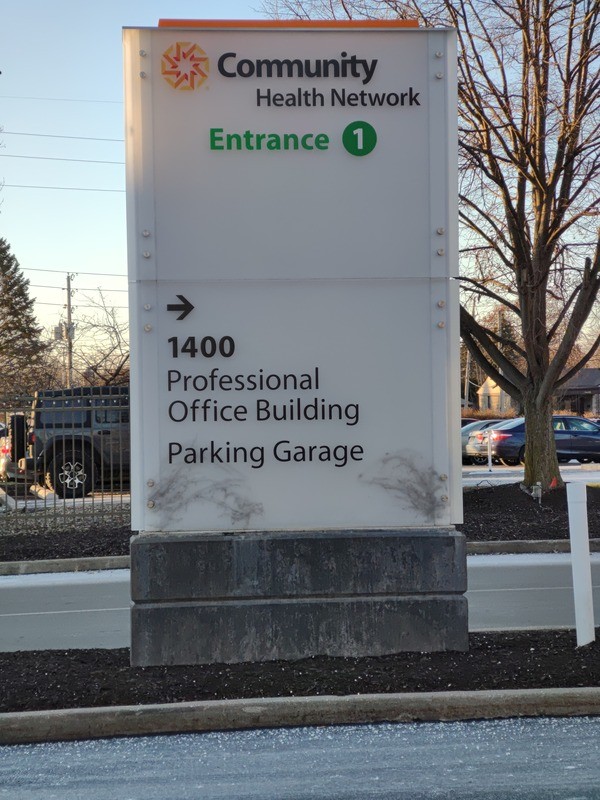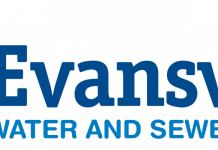STARK LAW: Community Health Network agrees to multi-million settlement linked to alleged ‘fraudulent scheme
JANUARY 16, 2024
Community Health Network, headquartered in Indianapolis, has agreed to pay $345 million to settle allegations that it violated the False Claims Act by knowingly submitting claims to Medicare for services that were referred to its facilities in violation of the Stark Law.
The U.S. Attorney’s office for the Southern District of Indiana announced the settlement Tuesday.
Not only is this the second False Claims Act Community has settled with the government, after paying $20.3 million to settle allegations of misconduct  in 2015, this is believed to be the largest Stark Law False Claims Act settlement. The $345 million is nearly triple the largest prior settlement of $115 million with Adventist Health System in North Carolina, according to a news release from DeLaney & DeLaney, an Indianapolis law firm that assisted the whistleblower in this case.
“When doctors refer patients for CT scans, mammograms, or any other medical service, those patients should know the doctor is putting their medical interests first and not their profit margins,†said Zachary A. Myers, U.S. Attorney for the Southern District of Indiana. “The United States alleged that Community Health Network overpaid its doctors, and that it paid doctors bonuses based on the amount of extra money the hospital was able to bill Medicare through doctor referrals. Such compensation arrangements erode patient trust and incentivize unnecessary medical services that waste taxpayer dollars.â€
The government did not disclose how much CHN received from its alleged “fraudulent scheme.†However, the government’s intervening complaint said “CHN received millions of dollars in Medicare reimbursement to which it was not entitled.â€
Community Health Network has 10 hospitals in its organization, according to its website. Six are in Indianapolis with others in Anderson, Kokomo, Anderson and Brownsburg.
As part of the settlement, CHN will enter into a five-year corporate integrity agreement with the Office of the Inspector General for the Department of Health and Human Services. Terms of the agreement include the appointment of a compliance officer, creation of procedures to ensure compliance with the Anti-Kickback Statute and Stark Law, and hiring a law firm or consulting firm to perform claims review.
“HHS-OIG remains steadfast in our efforts to protect our health care programs and the people they serve, including holding those accountable who violate the Stark Law,†said Deputy Inspector General for Investigations Christian J. Schrank of the U.S. Department of Health and Human Services Office of Inspector General (HHS-OIG). “Our work will not cease here.â€
Under the Stark Law, hospitals are prohibited from billing Medicare for certain services to patients who were referred by physicians who, in turn, have a “financial relationship†with the hospitals. The U.S. alleged that Community was paying some physicians – including cardiologists, cardiothoracic surgeons, vascular surgeons, neurosurgeons, and breast surgeons – well above fair market value, awarding bonuses to physicians based on the number of patient referrals and submitting claims to Medicare for services that resulted from the unlawful referrals.
Community Health Network issued statement, saying the matter involved “alleged technical violations†and the settlement resolves the government’s claims with “no finding of wrongdoing.†The health-care provider also emphasized it is committed to patient care.
“This is completely unrelated to the quality and appropriateness of the care Community provided to patients,†said Community spokesperson Kris Kirschner. “This settlement, like those involving other health systems and hospitals, relates to the complex, highly regulated area of physician compensation. Community has consistently prioritized the highest regulatory and ethical standards in all our business processes.â€
Whistleblower case
The settlement follows the False Claims Act lawsuit Thomas Fischer, former Community chief financial officer, filed against the health-care provider in 2014. Fischer is a whistleblower who filed the complaint against his former employer on behalf of the U.S. government. In his compliant, he alleged Community Health Network defrauded the federal government and the state of Indiana by improperly compensating physicians to get them to refer patients, including Medicare and Medicaid patients, to its hospitals and associated medical facilities for medical services.
The U.S. Department of Justice intervened in Fischer’s case in 2019 and filed its own complaint. The settlement resolves the government’s complaint. Fischer’s case against Community is continuing over similar allegations of fraud, as well as his individual employment and retaliation claims.
Fischer disputed Community’s characterization of the violations.
“I am grateful for this recovery,†Fischer said in a press release. “These claims are not mere technicalities; they directly affect patients, hospital employees and the high cost of healthcare. This puts money back into the healthcare system and is a victory for the Indiana taxpayer.â€
Fischer is represented by attorneys from Joseph Greenwald & Laake, Preti Flaherty Beliveau & Pachios, Lite DePalma and local employment counsel Kathleen DeLaney of DeLaney & DeLaney, in Indianapolis.
Compensating for referrals
According to the government’s intervening complaint, CHN began an “aggressive campaign to recruit physicians for employment†starting in 2008 and 2009 and particularly after Bryan Mills became the hospital’s CEO.
Many of the physicians already had staff privileges or practiced at CHN and were referring patients there, but the government alleged, they were recruited and employed by CHN to prevent them from making referrals to local competing hospitals. CHN lured “hundreds of physicians†by paying salaries that were significantly higher than both what they were receiving through their own practices and the fair market value.
Valuations of the compensation by outside accounting firms put the amounts at or above the 90th percentile of the market data, the government stated in its complaint. In an analysis of CHN payments to physicians in 2012 and part of 2013, Indianapolis accounting firm Katz Sapper & Miller described the compensation as “staggering.â€
CHN boosted its employment rolls to capture more Medicare reimbursements, according to the government. The Medicare reimbursements to hospitals are higher when the medical services are provided in the hospital, instead of at a physician’s office, the government said.
Consequently, CHN stood to receive more Medicare dollars for the same services, because the employee-physicians would instead be referring patients directly to the hospital for medical services, the government said.
Along with paying high salaries, CHN also awarded “incentive compensation†to physicians based on the “volume or value of referrals,†according to the government.
“Compliance with the Stark Law goes to the essence of Medicare’s bargain with participating healthcare providers,†the government stated in its intervening complaint. “The Stark Law plays a key role in ensuring that services are reasonable and necessary, and not provided merely to enrich the parties in a financial relationship at the expense of federal health programs and their beneficiaries.â€
Among the causes of action, the government alleged three violations of the False Claims Act. The government alleges, in particular, CHN submitted false claims for payments and made and used false records or statements “with reckless disregard or deliberate ignorance of whether or not they were false.â€
Fischer’s co-counsel, Tim McCormack from Preti Flaherty Beliveau & Pachios, credited his client with stopping CHN’s alleged unlawful actions.
“I could not be prouder of Mr. Fischer’s tenacity,†McCormack said. “Cases like this are vital to keeping financial incentives away from medical judgment. Without a brave insider like Mr. Fischer, willing to speak up, speak out, and then blow the whistle, Community likely would have continued to get away with its fraud.â€
The case is United States and the State of Indiana ex rel. Thomas Fischer v. Community Health Network, Inc., et al., 1:14-cv-1215.
Dwight Adams, a freelance editor and writer based in Indianapolis, edited this article. He is a former content editor, copy editor and digital producer at The Indianapolis Star and IndyStar.com, and worked as a pla






What about them referring patients to their own rehab and understaffed nursing homes
Someone should look into there accounting department. I sent a payment to them in December it took to January to get it to record. And they are still sitting on 1 payment that has not been credited to the right person. It is useless to talk to them they keep saying I will call you back once we investigate it and you never get a call.
Comments are closed.